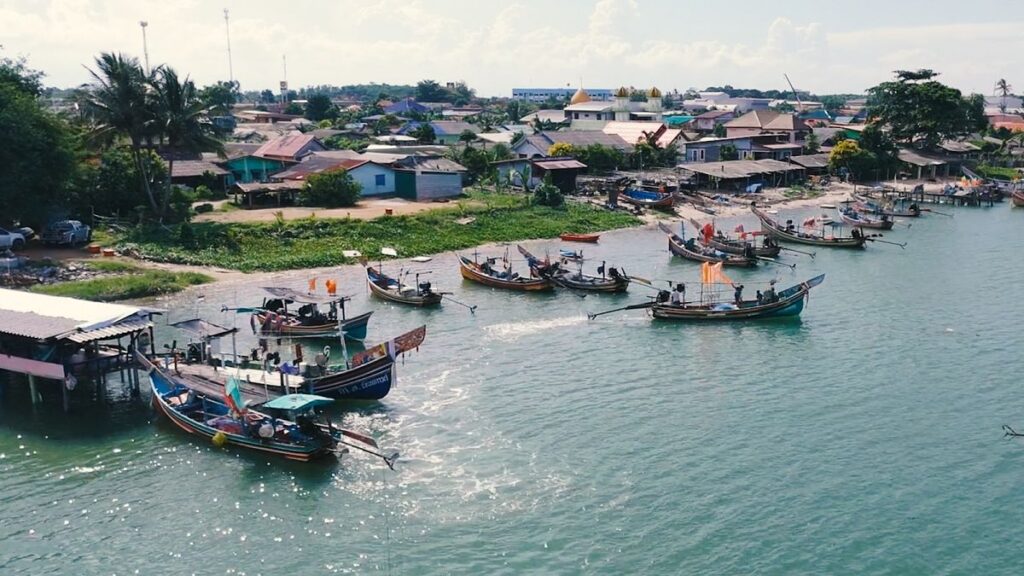For centuries, Thailand’s coastal communities have made a living from fishing, with the national economy closely linked to the rhythm of the tides. However, in the wake of global demands for sustainable practices, the way of life of small-scale fishermen is under threat.
In 2015, the European Union sent a “yellow card” to Thailand warning it of its inability to combat illegal, unreported and unregulated (IUU) fishing. To avoid a total ban on seafood exports to the EU, Thailand has implemented some of the strictest fishing laws in the world. These measures have since transformed the industry, but not without controversy.
Although the EU lifted the yellow card in 2019, the reforms put in place remain a double-edged sword for local communities. Although they helped Thailand gain a foothold in international markets, the reforms also imposed heavy financial and operational burdens on small-scale fishermen.
The high cost of compliance
Thailand’s measures to combat IUU fishing have primarily targeted large-scale commercial operations, but their far-reaching scope has trapped many of the country’s 50,000 small-scale operators, including Mode Bunna, a fisherman from Songkhla. “A lot of people have given up fishing. There are only me and my brother still fishing in this region,” laments Bunna.
For these small operators, even minor infractions, such as logbook errors, can result in huge fines of up to two million baht (55,000 euros). When the daily yield of a small fisherman is around 100,000 baht (2,700 euros), these fines are inapplicable.
“Thailand has 22 coastal provinces registered with the National Fisheries Association. This law has had a significant impact on the livelihoods of thousands of fishing families,” adds Mongkol Sukcharoekana, president of the National Fisheries Association of Thailand.
Thailand’s once-robust seafood industry has felt the effects of these harsh policies. Sukcharoenkana adds that downstream industries have also collapsed, leaving entire communities vulnerable.
The economic benefits
The country’s small fishermen say they are being forced into bankruptcy. Meanwhile, large commercial ships continue to operate in the same waters, often depleting fish stocks before smaller boats have time to cast their nets.
The director general of Thailand’s Ministry of Fisheries, Bancha Sukkaew, acknowledges the seriousness of the situation but defends IUU regulations. “As provided for in the Constitution, the fishing law must be subject to an evaluation of its effectiveness, like other legislative texts,” he explains, highlighting a possible path towards reform .
A momentum for reform
Calls for legislative changes are gaining ground. Fishing communities, whose livelihoods are at stake, are proposing changes to the law through the House of Representatives. They want measures that reflect Thailand’s local context while respecting its global responsibilities.
Bancha insists that “the proposed amendments remain consistent with our international obligations and our commitment to a policy to combat IUU fishing, making them more consistent with our (local) context, while encouraging more efficient fishing. responsible and sustainable. »
However, Wichoksak Ronnarongpairee, director of the Association of Thai Fisherfolks Federation (ATFF), cautions that not all stakeholders agree on the extent of these reforms. “Some groups have proposed abolishing IUU measures, which I totally disagree with,” he says. “We are part of the global community and do not live in isolation. »
Others, like Dr Poj Aramwatananont of the Thai Chamber of Commerce, advocate a middle ground. “International law may be good for one country, but it is too strict for another. Thailand must follow international rules and regulations, but we must also adapt. »
A delicate balance
For anglers like Mode Bunna, the stakes couldn’t be higher. Now 70 years old, he refuses to give up the life he knew for decades. “My family has been fishing here for generations,” he explains. “I can’t stop now. I’m too old to do anything else. » Despite the difficulties, Bunna’s determination reflects the broader fight being waged by Thailand’s artisanal fishing communities.
As the Thai government considers changes to its fishing laws, the challenge will be to strike a balance between protecting the livelihoods of small-scale fishermen and maintaining its hard-earned reputation for sustainability. The sea has always been a source of life for Thailand’s coastal communities. Maintaining this situation will depend on the reforms that follow.


